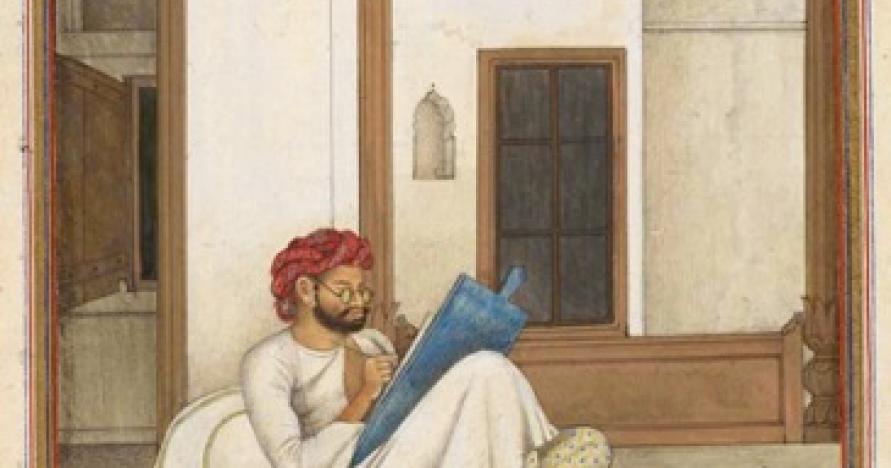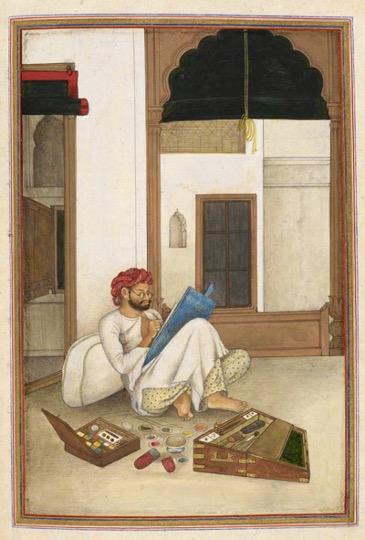
Please join us for a talk by
Yuthika Sharma
titled “The Dilli Qalam: Beyond Mughal and Company painting in 19thC India
May 3 | 12:30 | Humanities Gateway | Room #1341 |
Jordan Center for Persian Studies
*This event is co-sponsored by Early Cultures Department

In 19th C Delhi, the site of rising British colonial and flailing Mughal power, a group of painters forged a new and radical visual culture that sought to bridge the political divide. They established the parameters of a distinct “qalam,” the term for a reed pen that referred interchangeably to the concept of style, genre, and expertise, which was lauded by the city’s intellectuals as a new sign of artistic genius. In this talk, I look at the formation of the Dilli qalam or the Delhi style in Urdu language commentary alongside a close look at the circulation of paintings in Delhi’s public sphere. The rise of an artistic consciousness of a city-based school of painting, I argue, decenters both the Mughal court, and the East India Company and its British patrons, as sites of authority. Instead, it is the artist’s workshop, the bazaar, the new Indo-colonial marketplace, and imperial exhibitions at Delhi that emerge as new arenas for the canonization of the Dilli qala

Bio: Yuthika Sharma works on the visual culture of South Asia in the early modern and colonial period. Her research spans a range of topics on colonialism, culture, gender and labour relations. Her publication emerging out of her dissertation research, Princes and Painters in Mughal Delhi 1707-1857 (co-authored with William Dalrymple, Yale University Press, 2013) focused on artistic identity and knowledge exchange in the long 18th century in Anglo-Mughal India. She has written on portraiture and the practice of proto-colonial survey strategies, the contested art history of ivory souvenirs as well as the role of ‘oriental’ commodities in the British domestic sphere. Dr. Sharma has curated a number of exhibitions in the US and the UK and also worked at the British Museum and continues to engage with art historical pedagogy, collecting and curatorial practice. Her research has been supported by the Leverhulme Trust, The Arts and Humanities Research Council and the Paul Mellon Centre for British Art.
